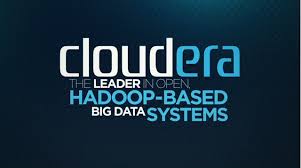
CLOUDERA CERTIFIED DATA ENGINEER (CCDE)
The Cloudera Certified Data Engineer (CCDE) certification is designed for individuals who have the skills to develop reliable, scalable, and optimized data pipelines using Apache Hadoop. Data engineers with this certification are expected to be proficient in designing, building, and maintaining data processing systems.
Who should do This Course
The Cloudera Certified Data Engineer (CCDE) course is ideal for individuals seeking expertise in the development of robust and scalable data processing systems within the realm of big data. This certification is particularly relevant for data engineers, big data developers, database administrators, data architects, and software developers looking to expand their skills to encompass Apache Hadoop and related technologies. While there are no strict prerequisites, candidates are recommended to have hands-on experience with the Hadoop ecosystem, proficiency in programming languages like Java, Python, or Scala, familiarity with Linux and command-line operations, basic database knowledge, and an understanding of Cloudera's training resources. The CCDE certification attests to one's ability to design, build, and maintain data pipelines efficiently. Prospective candidates should review Cloudera's specific prerequisites, ensuring they possess the necessary background and skills to benefit from the course and successfully pass the certification exam. It is advisable to check the official Cloudera certification website for the most up-to-date information.
Duration : 2 Months
Exam Code : Cloudera Certified Data Engineer (CCDE)
The Cloudera Certified Data Engineer (CCDE) exam is an assessment designed for individuals aspiring to showcase their proficiency in developing scalable and resilient data processing systems using Apache Hadoop and associated technologies. To undertake the exam, candidates are typically required to pay an associated fee, the exact amount of which can vary, and it is recommended to check the official Cloudera certification website or contact Cloudera directly for the most current fee information. The passing score for the CCDE exam is determined based on the difficulty of the questions and is communicated to candidates during the exam. Registration for the exam is generally conducted online through the official Cloudera certification platform, where candidates may need to create an account. The exam format typically includes multiple-choice questions, hands-on exercises, and scenario-based assessments to evaluate candidates' practical skills and theoretical knowledge
Why INFOBIT :
Elevate your data engineering skills with Infobit Technologies' Cloudera Certified Data Engineer (CCDE) training program, a premier offering in the high-end IT education industry. Our meticulously designed curriculum immerses you in the latest data engineering technologies and industry best practices, ensuring you are well-equipped to excel in the complexities of contemporary data management. Delivered by expert instructors, including Cloudera Certified Trainers and seasoned professionals, the training provides a unique blend of theoretical knowledge and real-world insights.
Our emphasis on hands-on learning is reinforced through dedicated lab facilities, available conveniently from 10 AM to 7 PM, allowing you to gain practical experience in a controlled environment. As part of our commitment to your success, we extend job assistance, connecting you with opportunities in the data engineering domain.
Cloudera Certified Data Engineer (CCDE) course content
1. Introduction to Big Data and Hadoop Ecosystem:
- Understanding the concepts of big data and the role of the Hadoop ecosystem.
2. Hadoop Distributed File System (HDFS):
- Overview of HDFS, its architecture, and how it stores and manages data across a distributed cluster.
3. Data Ingestion:
- Techniques for ingesting data into Hadoop, including batch processing and real-time ingestion.
4. Data Processing with MapReduce:
- Introduction to MapReduce programming model for processing large datasets.
5. Apache Spark:
- Overview and hands-on experience with Apache Spark, a fast and general-purpose cluster computing system.
6. Apache Hive:
- Working with Hive for data warehousing and SQL-like querying in a Hadoop environment.
7. Apache HBase:
- Understanding HBase, a NoSQL database built on Hadoop, and its use for real-time, random read/write access to large datasets.
8. Data Transformation and ETL (Extract, Transform, Load):
- Techniques for transforming and preparing data for analysis.
9. Data Optimization and Troubleshooting:
- Strategies for optimizing data processing systems and troubleshooting common issues.
10. Security and Governance:
- Implementing security measures and ensuring governance in a big data environment.

